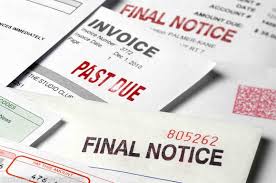 I’ve posted two recent blogs regarding the concept of property in bankruptcy cases, focusing on property that an individual may not have at the time a bankruptcy case is filed, but which the Bankruptcy Code identifies as property of the bankruptcy estate. I wrote about some common examples of this type of property – earned but unpaid wages, tax refunds, insurance residual payments and real estate commissions. The key point in these examples is that all of these not-yet-received payments were owed to the bankruptcy debtor at the time the bankruptcy case was filed – any wages, refunds, residuals or commissions earned after the filing date belong to the debtor, not the bankruptcy estate.
I’ve posted two recent blogs regarding the concept of property in bankruptcy cases, focusing on property that an individual may not have at the time a bankruptcy case is filed, but which the Bankruptcy Code identifies as property of the bankruptcy estate. I wrote about some common examples of this type of property – earned but unpaid wages, tax refunds, insurance residual payments and real estate commissions. The key point in these examples is that all of these not-yet-received payments were owed to the bankruptcy debtor at the time the bankruptcy case was filed – any wages, refunds, residuals or commissions earned after the filing date belong to the debtor, not the bankruptcy estate.
There’s another type of property to which bankruptcy debtors might not yet have received, but which is counted as property of the bankruptcy estate: money or property inherited or life insurance beneficiary payments received after someone’s death.
If the person in question dies before a bankruptcy case is filed, but the money has not yet been received, the bankruptcy debtor has to schedule his interest in the property and, if possible exempt as much of it as the debtor is able. This is the same situation as unpaid wages, etc. – even though the property has not yet been received, the debtor is entitled to it. It’s property of the bankruptcy estate.
But there’s an extra twist with inheritances. This is one type of property that becomes property of the bankruptcy estate even if the debtor was not entitled to receive money or property on the day the bankruptcy case was filed. Instead, the Bankruptcy Code says that if the person dies within 180 days after a bankruptcy case is filed, and a bankruptcy debtor is then entitled to inherit money or property, that inheritance is property of the bankruptcy estate. In most circumstances, at least some of the after-filing inheritance can be exempted, but if there is a significant amount of money or property coming to the bankruptcy debtor, the trustee will receive the inheritance in the place of the debtor and pay creditor claims with the money. After 180 days, an inheritance belongs solely to the heir, but bankruptcy debtors should be aware that the death of a close friend or relative within six months of a case being filed is an event that requires the debtor to get in touch with their attorney to make sure that the inheritance is handled properly so that the debtor’s bankruptcy discharge is not jeopardized.
These types of rules are good reasons why a person thinking about filing a bankruptcy case should speak with an attorney well-versed in bankruptcy law before making the filing decision. The attorneys at Kain & Scott are waiting to help you! Go now to www.kainscott.com. You will be so glad you did!


